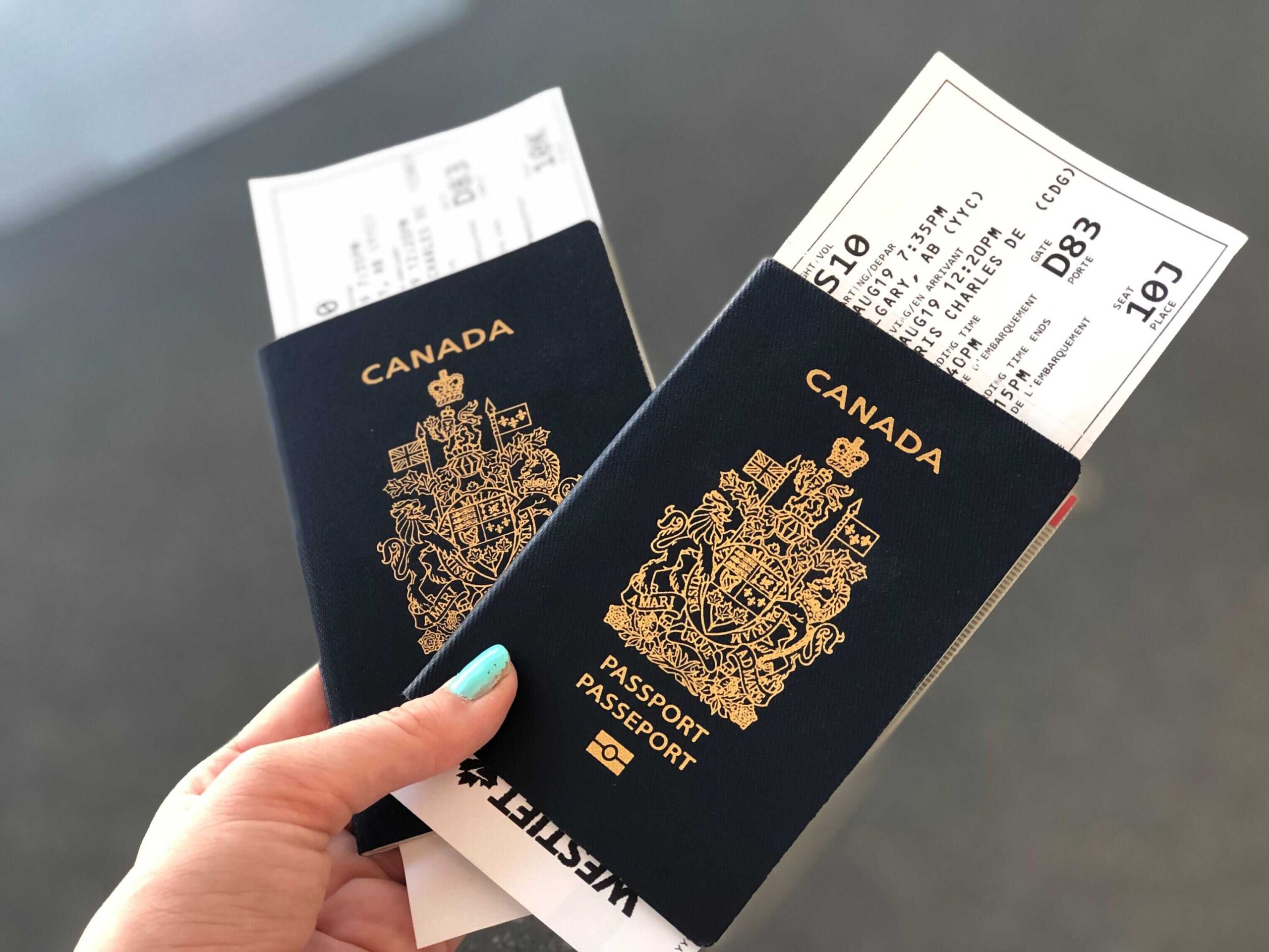Planning a trip to Canada but your passport has expired? You may be wondering if you can still travel to Canada with an expired passport.
The quick answer is typically no – in most cases, Canadian authorities require your passport to be valid for the duration of your trip.
However, there are some exceptions and ways you may still be able to enter Canada with an expired passport depending on your citizenship and the rules at the time.
In this comprehensive guide, we’ll walk through everything you need to know about traveling to Canada with an expired passport.
We’ll overview the general passport validity rules, exceptions for Canada and the U.S., other requirements like visas and ESTAs, renewal/application tips, and what to do if you find yourself at the Canadian border with an invalid passport.
General Passport Validity Rules for Canada
When planning a trip to Canada, one of the most important things to consider is the validity of your passport. In order to enter Canada, your passport must be valid for the entire duration of your trip.
This means that your passport should not expire before you leave Canada to return to your home country.
It is always a good idea to check the expiration date of your passport well in advance of your trip to ensure that it is still valid.
Passport Must be Valid For Entire Duration of Trip
Canadian immigration authorities require that your passport be valid for the entire duration of your stay in Canada.
This is to ensure that you have a valid identification document throughout your visit.
If your passport is set to expire during your time in Canada, it is recommended to renew it before you travel.
Renewing your passport in advance will help you avoid any potential issues or delays at the Canadian border.
Important Note: It is important to remember that each country has its own specific rules and regulations regarding passport validity.
Before traveling to any country, including Canada, it is always a good idea to check the passport validity requirements of that country’s immigration authorities.
This will help you avoid any last-minute surprises or complications during your trip.
Some Leniency for U.S. Citizens
While it is generally required for all travelers to have a valid passport for the entire duration of their stay in Canada, there is some leniency for U.S. citizens.
U.S. citizens traveling to Canada by land or sea can present a valid passport card instead of a traditional passport.
The passport card has a shorter validity period compared to a traditional passport, but it is still accepted for entry into Canada.
Fun Fact: Did you know that Canada has a reciprocal agreement with the United States called the Western Hemisphere Travel Initiative (WHTI)?
This agreement allows U.S. citizens to use a passport card or an enhanced driver’s license to enter Canada by land or sea.
It is important to note that these leniencies only apply to U.S. citizens traveling by land or sea. If you are a U.S. citizen planning to travel to Canada by air, you will still need a valid passport.
Exceptions for Canadian and U.S. Citizens
Exceptions for Canadian Citizens
Canadian citizens have certain exceptions when it comes to traveling to Canada with an expired passport.
This can include a birth certificate, a citizenship card, a certificate of Indian Status, or a Canadian permanent resident card.
However, it is important to note that using alternative proof of citizenship may result in additional screening and delays at the border.
Other Entry and Travel Requirements
Traveling to Canada requires more than just a valid passport. In addition to your passport, there are other entry and travel requirements that you need to be aware of.
These requirements may vary depending on your country of citizenship and the purpose of your visit.
Visas
Before traveling to Canada, it’s important to determine whether you need a visa. A visa is a document that allows you to enter and stay in Canada for a specific period of time.
Not all visitors to Canada require a visa, as some countries have visa-exempt agreements with Canada.
To find out if you need a visa, you can check the Government of Canada’s official website or consult with the nearest Canadian embassy or consulate in your country.
If you do require a visa, it’s essential to ensure that your visa is valid for the duration of your stay in Canada.
An expired visa may result in denied entry or other immigration issues. Therefore, it’s crucial to check the expiry date on your visa and apply for a new one if necessary.
Electronic Travel Authorization (eTA)
In addition to visas, certain travelers may need to obtain an Electronic Travel Authorization (eTA) before entering Canada.
An eTA is an electronic document linked to your passport and is required for visa-exempt travelers entering Canada by air.
This includes travelers from countries such as the United States, Australia, and the United Kingdom.
To apply for an eTA, you can visit the official website of the Government of Canada. The application process is simple, and you will need to provide some personal information and pay a small fee.
Once approved, your eTA will be valid for up to five years or until your passport expires, whichever comes first.
| Visas | Electronic Travel Authorization (eTA) |
|---|---|
|
|

Renewing or Applying for a Passport
When it comes to traveling internationally, having a valid passport is essential. It serves as your primary form of identification and allows you to enter and exit different countries.
If your passport has expired or is about to expire, it’s important to take the necessary steps to renew or apply for a new one.
This article will guide you through the process of renewing a U.S. passport and applying for a Canadian passport.
Renewing a U.S. Passport
If you are a U.S. citizen and your passport has expired or will expire soon, you can renew it by following a straightforward process.
The first step is to fill out Form DS-82, which is available on the official website of the U.S. Department of State.
Once you have completed the form, you can submit it along with your expired passport, a recent passport photo, and the required fee.
It’s important to note that renewing a passport is only applicable if your previous passport was issued when you were 16 years old or older, and if it hasn’t been more than 15 years since the date of issuance.
If you are renewing a passport that was issued when you were younger than 16, or if your passport was lost, stolen, or damaged, you will need to apply for a new passport instead.
Arriving at the Canadian Border With an Expired Passport
Trying to Enter as a Canadian Citizen
If you are a Canadian citizen and your passport has expired, you may still be able to enter Canada. However, it is important to note that an expired passport may cause delays and complications at the border.
Canadian citizens are strongly advised to have a valid passport when traveling internationally, as it is the most widely accepted form of identification.
If you arrive at the Canadian border with an expired passport, you may be subject to additional questioning and scrutiny by border officials.
It is recommended to renew your passport before traveling to avoid any potential difficulties.
Trying to Enter as a U.S. Citizen
As a U.S. citizen, you are required to present a valid passport when entering Canada. If your passport has expired, you will need to renew it before your trip. Without a valid passport, you may be denied entry into Canada.
It is also worth noting that U.S. citizens can travel to Canada with a NEXUS card, which allows for expedited entry at the border.
However, the NEXUS program requires a valid passport, so if your passport is expired, you will not be able to use this option.
Trying to Enter as Any Other Nationality
For individuals of other nationalities, the rules regarding entry into Canada with an expired passport can vary. It is always best to check with the Canadian embassy or consulate in your country for specific guidelines.
In general, however, most countries require a valid passport for entry into Canada. It is highly recommended to renew your passport before traveling to avoid any potential issues at the border.
Conclusion
In summary, typically you cannot travel to Canada if your passport is expired or will expire during your trip. However, there are some exceptions if you are a Canadian or U.S. citizen.
Be sure to check the latest entry rules for your nationality and get your passport renewed early if needed.
With some preparation and understanding of the regulations, you’ll be all set for smooth travels to Canada.






